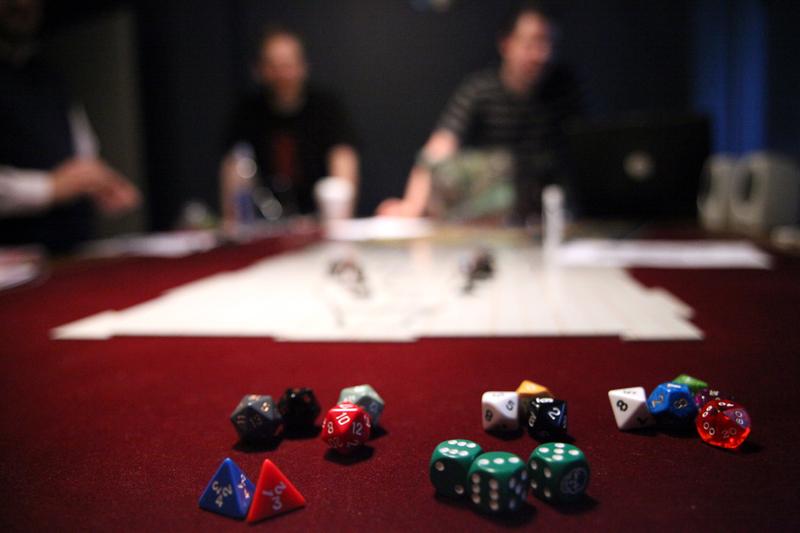
Over the last few years, Dungeons and Dragons has been experiencing a cultural revival, thanks to television shows and podcasts like Stranger Things and The Adventure Zone. But what was once a particularly nerdy pastime has also been embraced by teachers.
The game may be defined by fantastic monsters and dice-rolling, but at its core it's a way for a group of people to tell a story together. And some, like Sarah Roman, thought it could provide a chance to freshen up their lesson plans and get students out of their comfort zone.
"I had set up arena seating and a physical game board because they knew if they came in and everything was set up like that that it was game day, so they went into character," Roman told WNYC.
Roman had experimented with different ways of turning her lessons into a game for her students for years as a high school literature teacher in New Jersey before turning to Dungeons and Dragons, but bringing tabletop role playing into the mix changed the game. Instead of assigning the same old essays about Beowulf and The Canterbury Tales, she wove classroom assignments into an epic adventure for her students to play their way through. By the end of the semester, Roman said her students remembered more about the lessons and had developed relationships with the texts that they wouldn't have gotten from a standard assignment.
Getting a handle on academic material isn't the only benefit that role-playing games can have in the classroom, however. Creating a character to inhabit can give teenagers already grappling with complicated questions about their lives ways to safely explore different aspects of themselves.
"Almost all the teachers I talked to mentioned kids using a role-playing game like this to explore identity issues and gender and using it to wrap their head around things that are going on in the news," said illustrator Phil McAndrew, who wrote about Dungeons and Dragons in education settings for The Nib.
